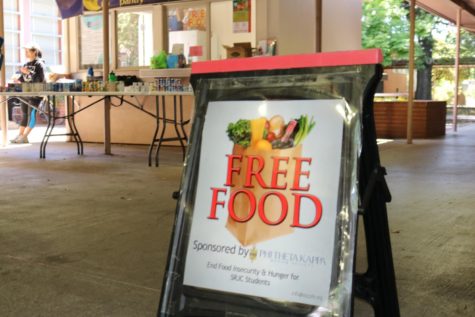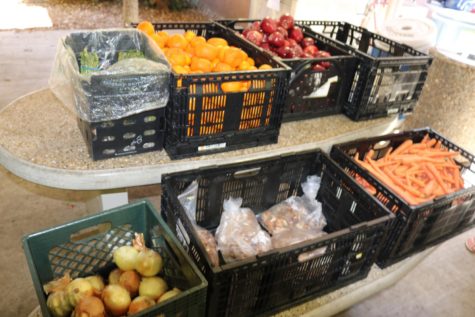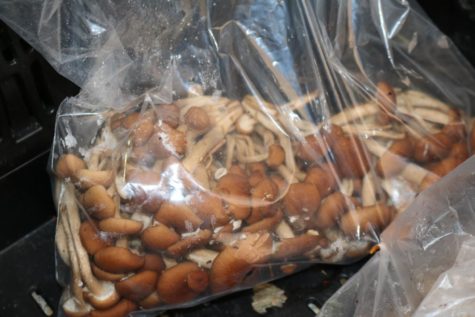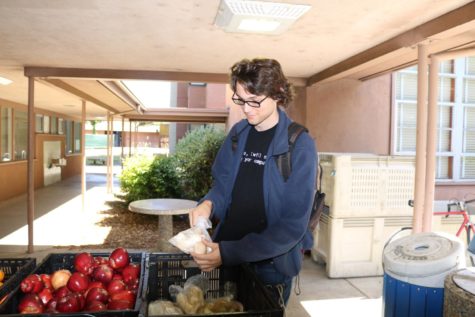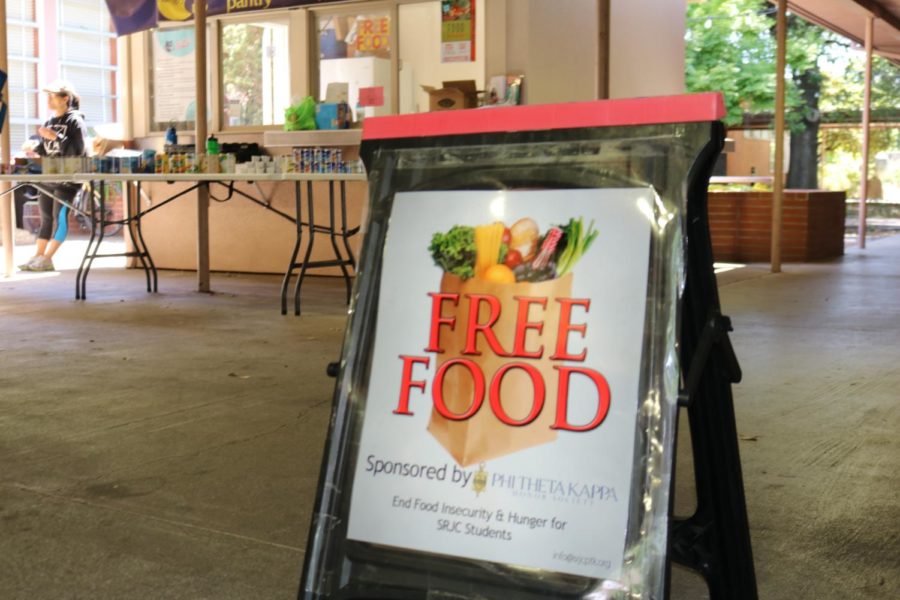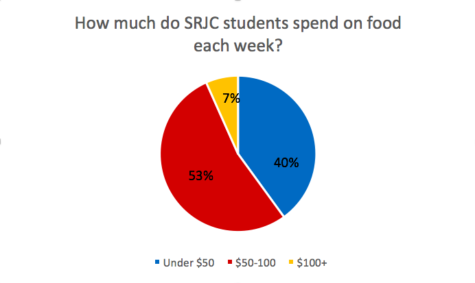“I grew up really poor actually. I remember food stamps, and it was hard for a while,” said Ammerman. Because she experienced food insecurity, she now has the knowledge to help others in the same situation. “I see where I was growing up, and being in a position where I can help people out now is pretty cool.”
Food insecurity—or facing uncertainty about one’s ability to provide oneself nutritious food at any given time—is an oppressive plight facing students at Santa Rosa Junior College and throughout the California Community College (CCC) system. According to a study by the University of Wisconsin, 13-to-14 percent of CCC students face food insecurity—that’s one in every seven students or approximately 3,500 students at SRJC.
Not maintaining healthy nutrition can have serious consequences for students learning ability.
“The body prioritizes basic functions,” said Nutrition Club President Michael Voight. If the body doesn’t receive enough nutrients, it will choose more important places to exert the energy than learning. “You will miss out on high cognitive capabilities, and you won’t do as well on exams.”
Phi Theta Kappa, a two year honor society, came together with the student government to create the student food pantry.
Vice President of Student Life Dori Elder, who helped with the expansion of the food pantry said food insecurity was a major barrier for students to enroll in the college.
“If we want to fix declining enrollment, one way to do that is to remove barriers like food insecurity,” Elder said. “We don’t have to have the starving college student stereotype here.”
The way the food bank works is when name brand grocery stores receive food below their standards, like an apple with a small bruise, they donate it to the Redwood Empire Food Bank. SRJC then buys the produce for cents a piece. It’s a win-win situation. Grocery stores get rid of products they can’t sell and SRJC receives discounted food.
The food pantry is located at Barnett Hall, and serves students Monday through Thursday. Students receive an array of different food from fresh vegetables to Progresso soup. Sometimes they have dry goods like pasta and bread, or even mushrooms.
The pantry is staffed largely by community volunteers and members from SGA and PTK.
“Look at all of this beautiful fruit… it’s like I’m shopping here. I’m just grateful they have this for everybody,” said food pantry volunteer Hien Igo. “It just makes you feel so much better that somebody cares.”
That is exactly how Phi Theta Kappa President Sophie Ammerman wants SRJC students to feel. She understands what hungry students experience.
She jokingly ended the interview with I want to help, “The college student eating Top Ramen and Oreos for dinner.”
She emphasized that the food bank is open to anyone. They don’t check IDs, and students are welcome to take as much food as they please. There is no food limit, and students shouldn’t feel bad for receiving the food. Phi Theta Kappa created the pantry for them.
And even though it’s located somewhat out of the way and they need to improve their marketing, Ammerman said the program have increased dramatically since last semester.
“Last semester we had 100 students,” Ammerman said. “Since then it’s doubled or even tripled.”
